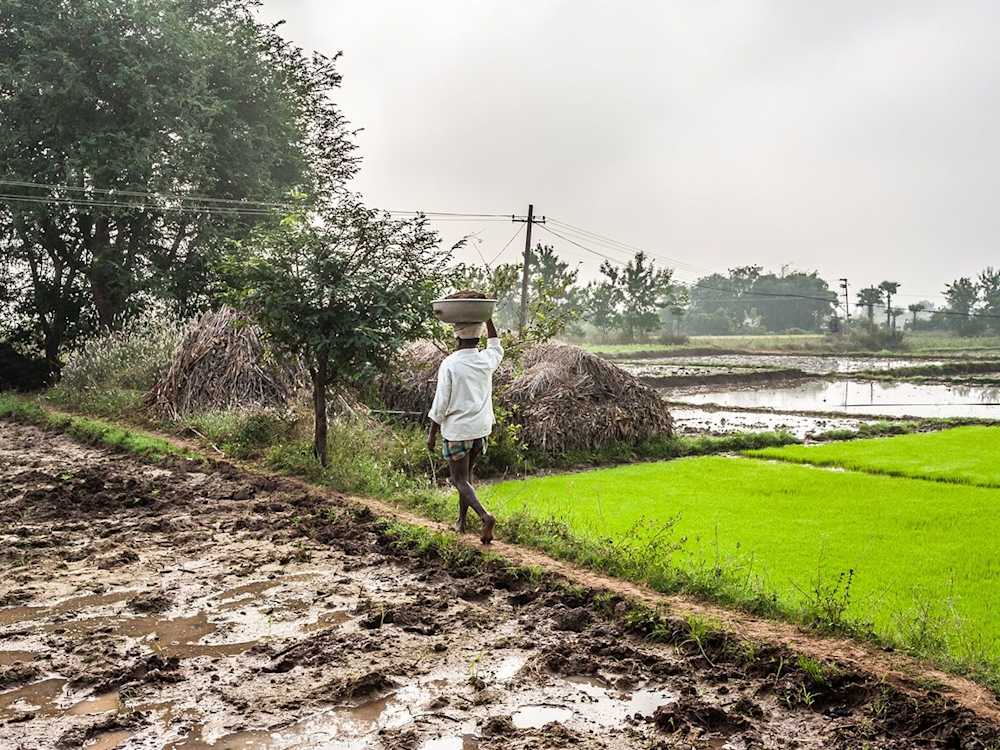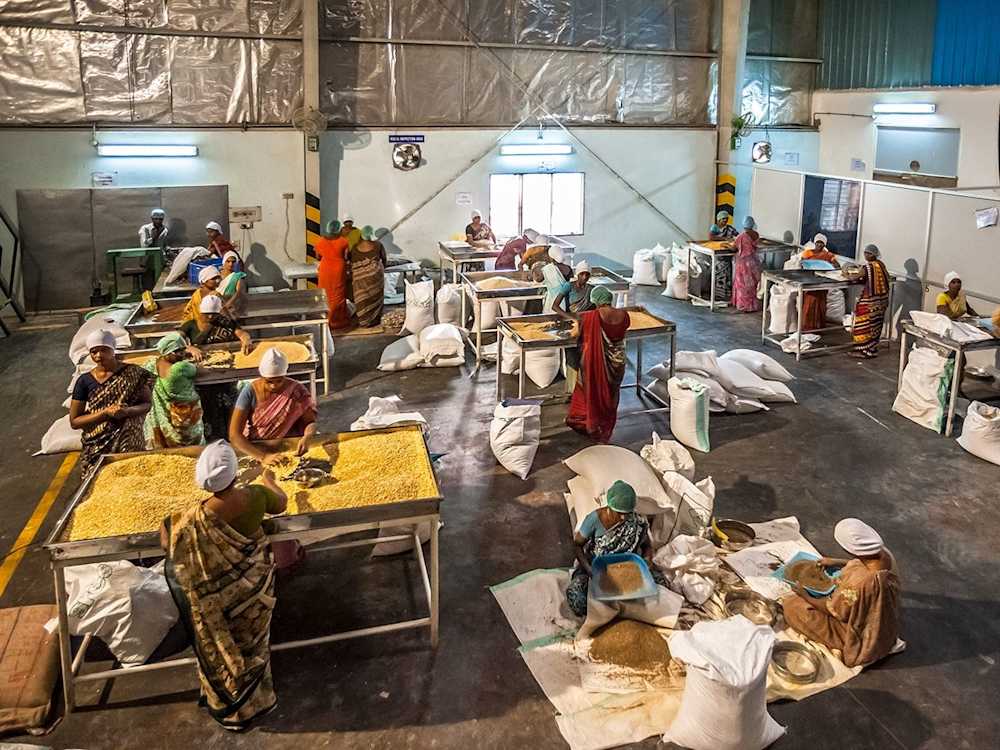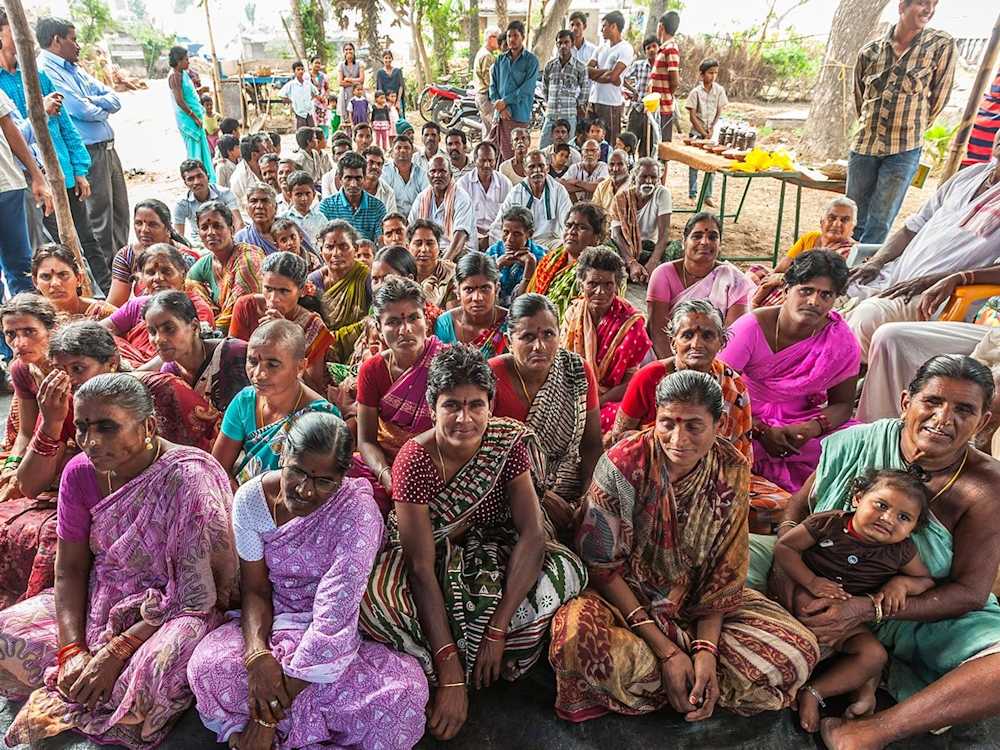Agriculture
First private equity investment into agricultural value chains
The recently launched responsAbility-managed private equity fund focusing on agriculture and food has just taken a stake in Samunnati Financial Intermediation and Services Pvt Ltd., an Indian financial intermediary. Fund manager Rik Vyverman, Head of Agriculture Equity Investments at responsAbility, explains what the company is about and how it fits into the fund’s portfolio.
Can you explain what Samunnati does?
Samunnati is an Indian Non Banking Financial Company that provides loans to smallholder farmers and small and medium-sized businesses across the agriculture value chain.
The Indian agricultural sector is mainly financed by banks (commercial, cooperative and regional rural), Non Banking Financial Companies (NBFCs), microfinance institutions and money lenders. Typically, all of them focus on single elements of the value chain, providing crop loans or agri input loans, for instance.

“By working with companies along the entire value chain Samunnati ensures all players have access to financing and benefit from this growth opportunity.”
Rik Vyverman, Head Agriculture Equity Investments
Samunnati does more than that. By focusing on the entire value chain Samunnati creates market linkages. This enables the entire value chain to grow. In doing so, Samunnati is able to capture and create more economic and social value.
What is the market potential for this type of service?
Here are some figures to give you an idea about the size of the Indian agricultural sector:
Agriculture accounts for USD 245 billion or 17% of the Indian GDP
Agriculture it is the principal source of livelihood for over 50% of the population.
India is amongst the top world producers in many commodities:
Milk (#1)
Fruits and vegetables (#2)
Poultry (#4)

India: the agricultural sector accounts for USD 245 billion of the GDP
Samunnati has currently identified 12 agriculture value chains, including dairy, fruits and vegetables and poultry. The total market size for the company, targeting only the top 1-3% operators across these value chains, represents a USD 50 bn addressable market.
What enables Samunnati to cost-efficiently address the financing need of small farmers and companies?
The company’s main USP comes from its non-linear sales model and underwriting methodology: Samunnati works with aggregators (buyers of goods from multiple sellers) to reach out to their networks. This enables Samunnati to cost-efficiently acquire new customers, which facilitates the company’s rapid growth.
“Samunnati works with aggregators to reach out to their networks. This enables the company to cost-efficiently acquire new customers.”
Rik Vyverman
Next to providing access to a network, the aggregator guarantees the loans to the sellers, which together with cash trap mechanisms and deduction at source lower the credit risk. The high growth rates (+300%) and the lower portfolio at risk (PAR) percentages compared to the sector benchmarks - peers and competitors - provide real evidence for this.

Aggregators and producers guarantee the loans to their suppliers, which results in low credit risk.
What type of impact does Samunnati create?
Samunnati provides access to financing to farmers and SMEs in the agricultural sector that would find it hard to get credit or adapted financial services otherwise. It is estimated that only 30% of the total agriculture demand in India is met by institutional credit. This is because banks require land as a collateral for their lending. At the same time, the sector has not been able to utilize credit effectively due to the rigid nature of the financial products, credit appraisal and disbursement.
Because of the lack of adapted financial products across the agriculture value chain, farmers are compelled to sell soon after harvest which often leads to lower prices and as such to lower than necessary income. Samunnati helps meet the market need by going through aggregator producer companies and buyers. This approach allows farmers to benefit from better prices, access to formal credit and technical know-how. The company has so far reached about 15’000 small holder farmers and is expected to grow its client base to more than 100’000 in the coming five years.

Samunnati’s approach allows farmers to benefit from better prices, access to formal credit and technical know-how.
Who is the team behind the company?
Samunnati was founded in 2014 by Anil Kumar SG, an experienced Indian banker with 26 years of experience in the areas of rural, retail and agri banking for institutions like IFMR Trust, ICICI Bank and Canara Bank. The senior management team consist of people Anil has worked with in the past. Between them, the team has over 200 years of experience and vast expertise.
How does Samunnati fit into the envisaged portfolio of the fund?
Samunnati is the first investment of our recently closed private equity fund dedicated to food and agriculture. The fund does not invest in primary agriculture, i.e. farmers or production companies, but focuses on investments further downstream the agriculture value chain such as aggregators, processors, traders or retailers.
Samunnati is one of few financial institutions entirely dedicated to the agricultural sector, even on a global level. We are very excited about this acquisition. Given its excellent track record and scalable lending approach, we look forward to seeing the company grow over the next years – creating value for investors as well as for the Indian agricultural sector and smallholder farmers.